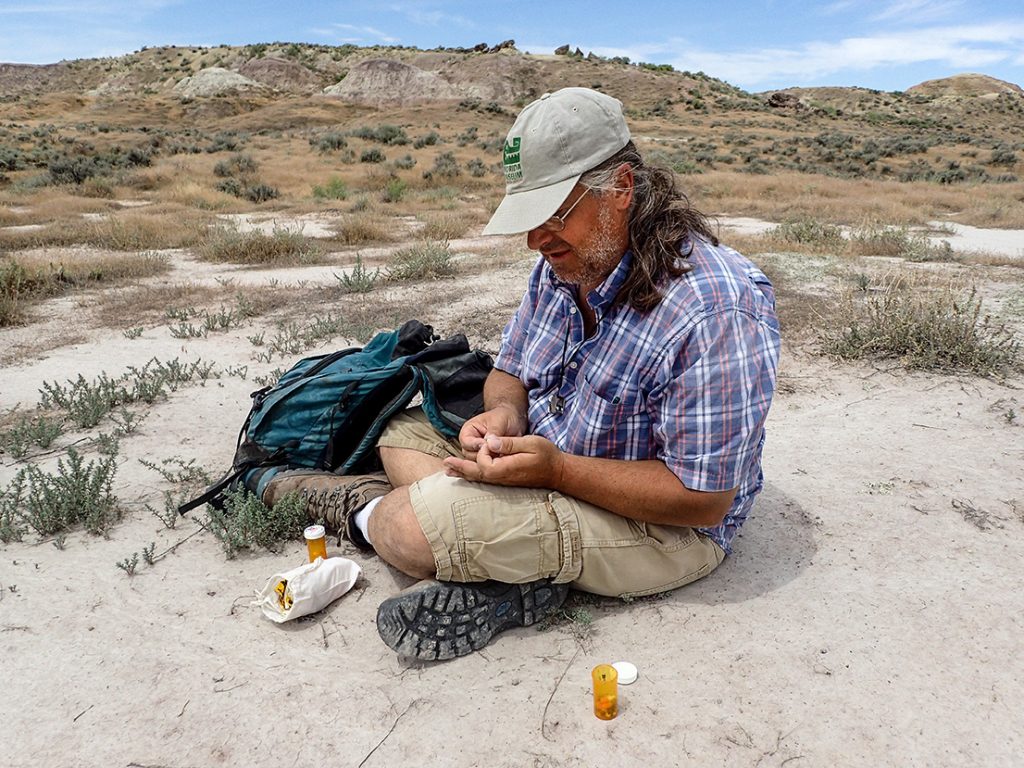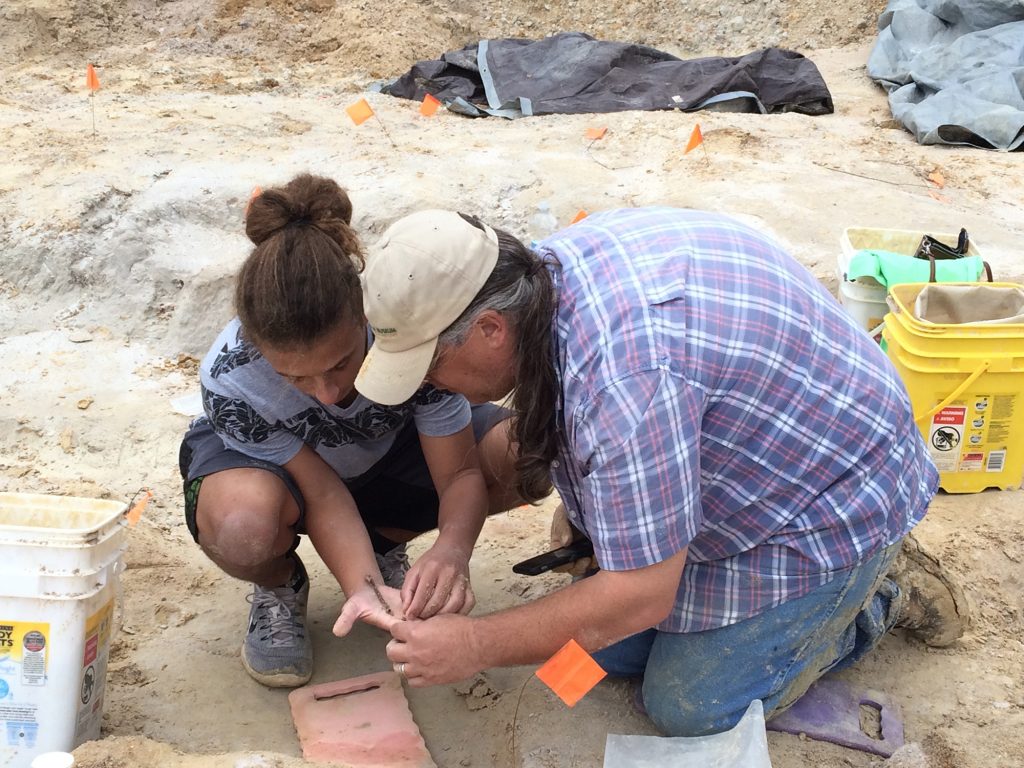Jon Bloch is no stranger to film crews and talking to viewers about his research. From the origin of primates to Titanoboa, his work has made headlines and caught the public’s imagination. So he was not surprised when asked to participate on an episode of NOVA.
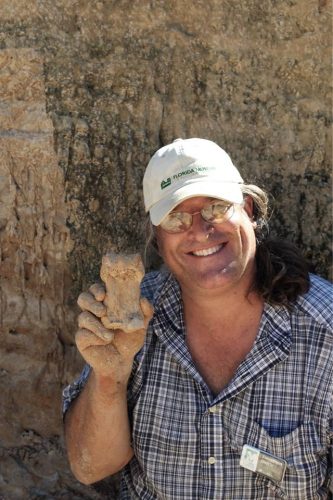
The two-hour NOVA series special reveals the bizarre history and explores the future of the Earth’s poles. Paleontologist and host Kirk Johnson of the Smithsonian National Museum of Natural History explores the causes for the dramatic changes to the poles, from lush forests to ice sheets, and reveals what we can learn from them about the present and future of the planet’s climate.
Bloch discusses the Paleocene-Eocene Thermal Maximum, or PETM, during his segment filmed at the Bighorn Basin in Wyoming. The PETM was a rapid global warming event that happened about 55.8 million years ago, when a massive amount of carbon released into the Earth’s atmosphere caused global temperatures to spike, resulting in dramatic responses by plants and animals. By studying the PETM and its effects, scientists hope to predict the impacts of human-driven climate change.
“As we think about future global warming we look to past examples to see how plants and animals might respond,” Bloch said. “In the PETM we are looking back to a world with no ice on the poles. What we see with global warming during this time are major shifts in geographic ranges in both plants and animals, dwarfing in many mammals, and the origin of certain modern mammals including primates and horses.”
About Jonathan Bloch
Jon Bloch is our vertebrate paleontology curator as well as the Florida Museum of Natural History’s department chair. He is very active in the field and in the lab, and also works with many University of Florida students. Among his multiple current projects, he is also one of the leaders at our 5-million-year-old Montbrook dig site near Williston in Levy County, which has yielded more than 35,000 fossils.
Some recent articles about his work:
- Oldest-known ancestor of modern primates may have come from North America, not Asia
- Fossils show ancient primates had grooming claws as well as nails
- Paleontologists find first fossil monkey in North America – but how did it get here?
Browse more Science News about Jon Bloch
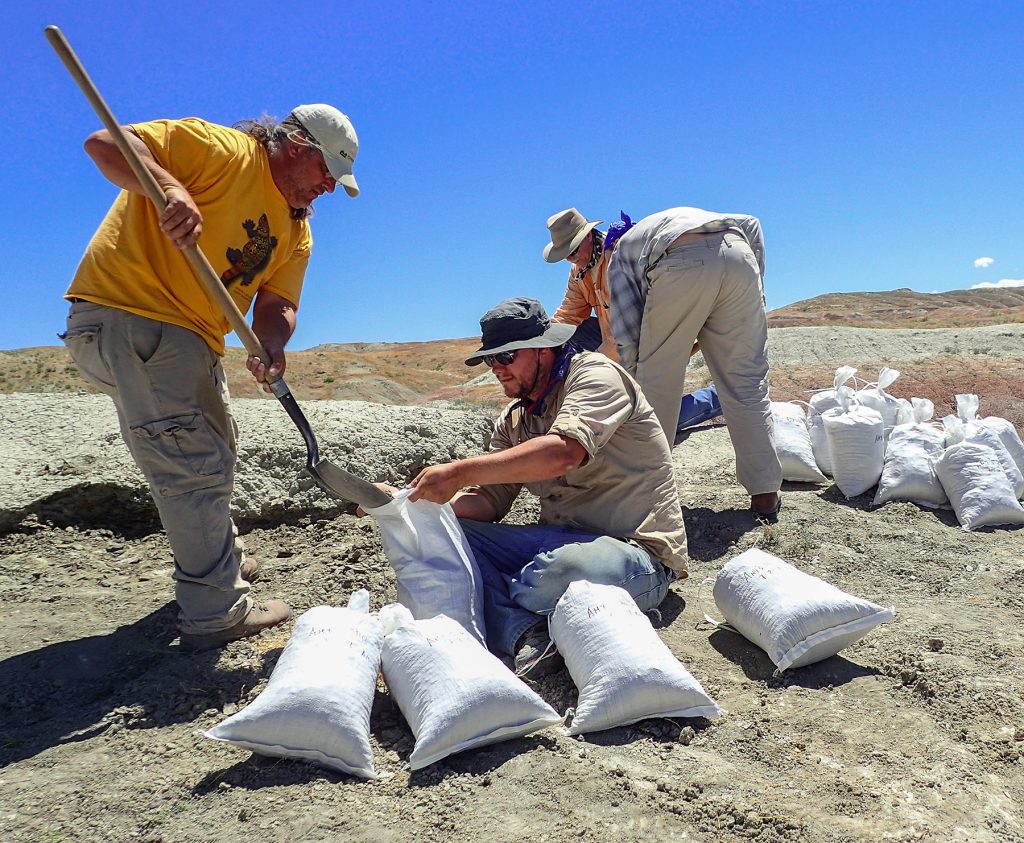
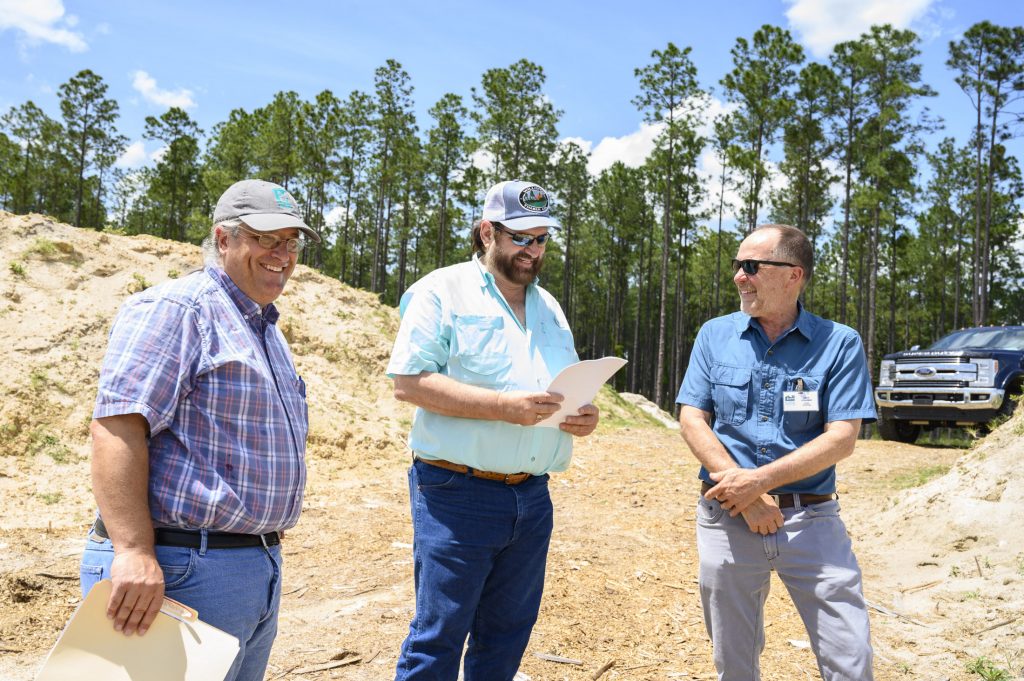
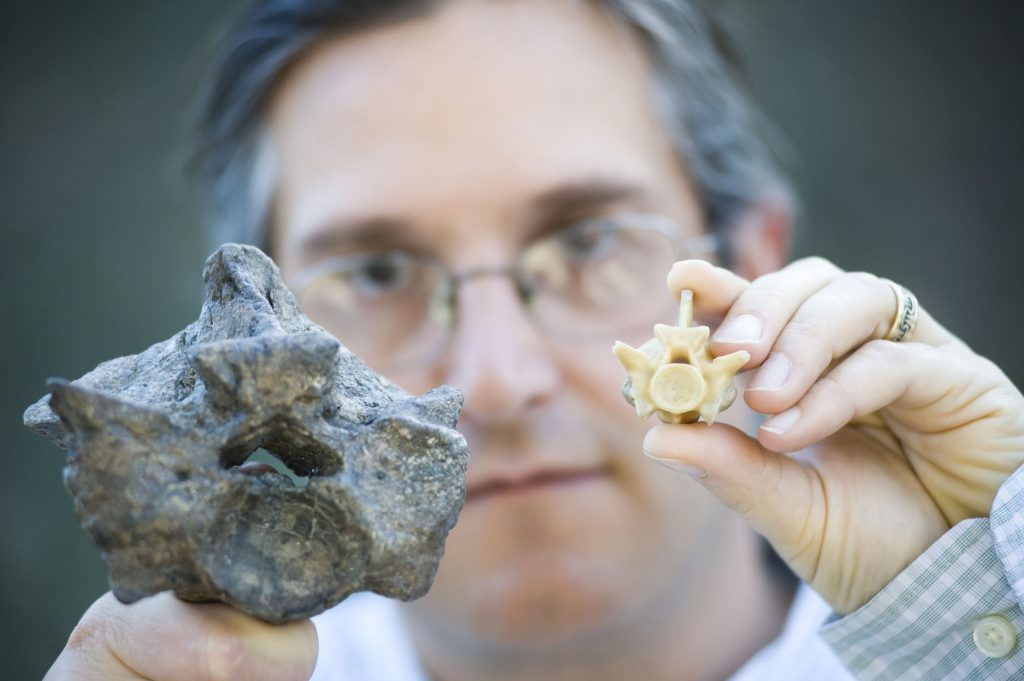
About the Show
This show will air on PBS on Feb. 5 at 8 p.m. EST, as well as stream live on the NOVA Facebook page. Jon Bloch plans on attending the Facebook live stream to answer select viewer questions.
